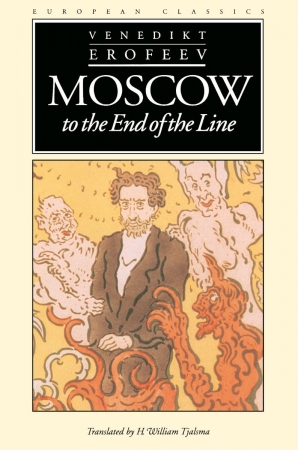What do you think?
Rate this book


164 pages, Paperback
First published January 1, 1969
Oh, that morning burned in the heart! Oh, the illusory nature of calamity. Oh, the irretrievable! What’s worse about this burden which no one has yet called by any name, what’s worse – paralysis, or nausea? Nervous exhaustion or mortal sorrow somewhere in the region of the heart? But, if that all equal, then all the same what’s worse about it – tetanus, or fever?
The other passengers looked at me almost indifferently with their round, vacant eyes.
I like that. I like that my country’s people have such empty, bulging eyes. This instills in me a feeling of legitimate pride. You can imagine what the eyes are like where everything is bought and sold – deeply hidden, secretive, predatory and frightened. Devaluation, unemployment, pauperism… People look at you distrustfully, with restless anxiety and torment. That’s the kind of eyes they have in the world of Filthy Lucre.
If I should ever have any children, I’ll hang on their wall a portrait of the Procurator of Judaea, Pontius Pilate, so that they will grow up neat and clean. Procurator Pontius Pilate standing there washing his hands – that’s the right kind of portrait.









Îmi place că poporul țării mele are ochii atît de goi și de bulbucați. Asta îmi imprimă un sentiment de legitimă mîndrie. Ne putem imagina ce fel de ochi sînt acolo. Unde totul se vinde și totul se cumpără: ...ochi bine ascunși, pitiți, rapaci și înspăimîntați... Inflație, șomaj, pauperism... Se uită pe sub sprîncene, cu îngrijorare perpetuă și suferință – iată ce fel de ochi sînt în lumea banilor peșin...
În schimb, ce ochi are poporul meu! Sînt mereu holbați, dar n-au în ei nici un fel de tensiune. Deplină absență a oricărui sens, în schimb – ce vigoare (ce vigoare spirituală!); ochii ăștia n-au să te vîndă. N-au să vîndă nimic și n-au să cumpere nimic. Orice s-ar întîmpla cu țara mea, în zile de îndoială, în zile de împovărătoare meditații, în vremuri de încercări și amaruri felurite – ochii ăștia n-au să clipească.
De-o viață întreagă mă apasă acest coșmar, coșmarul că ești înțeles anapoda, nu, nu „anapoda“, ci strict pe dos, adică de-a dreptul porcește, adică antinomic.”
Mai era și Hegel. Asta mi-o aduc aminte foarte bine: era și Hegel. Spunea: „Nu există deosebiri, în afara deosebirii de grad între gradele diferite și absența deosebirii“. Adică, dacă-i să traducem asta într-un limbaj ca lumea: „Cine nu bea acum?"...
Sufletul meu e precum burdihanul calului troian, încap multe în el.
Ziua noastră de mîine e mai luminoasă decît cea de ieri și cea de astăzi. Dar cine garantează că ziua noastră de poimîine nu va fi mai rea decît cea de alaltăieri?
Trebuie să respectăm, repet, străfundurile sufletului altuia. Trebuie să ne uităm în ele, chiar dacă acolo nu-i nimic, chiar dacă acolo nu-s decît aiureli e tot una: uită-te și respectă, uită-te și nu scuipa...

Не смейтесь. У меня богатый опыт в создании коктейлей. От Москвы и до Петушков пьют эти коктейли до сих пор, не зная имени автора; пьют «Ханаанский бальзам», пьют «Слезу комсомолки», и правильно делают, что пьют. Мы не можем ждать милостей от природы. А чтобы взять их у нее, надо, разумеется, знать их точные рецепты; я, если хотите, дам вам эти рецепты. Слушайте.
Я в их годы делал так: вечером в четверг выпивал одним махом три с половиной литра ерша — выпивал и ложился спать, не раздеваясь, с одной только мыслью: проснусь я утром в пятницу или не проснусь? И все-таки утром в пятницу я не просыпался. А просыпался утром в субботу, и уже не в Москве, а под насыпью железной дороги, в районе Наро-Фоминска. А потом — потом я с усилием припоминал и накапливал факты, а, накопив, сопоставлял. А сопоставив, начинал опять восстанавливать напряжением памяти и со всепроникающим анализом. А потом переходил от созерцания к абстракции, другими словами, вдумчиво опохмелялся, и, наконец, узнавал, куда же все-таки девалась эта пятница.
— Нет, вы меня не так поняли, ребята… просто я…
— Нет, мы тебя правильно поняли…
— Да нет же, не поняли. Не могу же я, как вы: встать с постели, сказать во всеуслышание: «Ну, ребята, я …ать пошел!» или «Ну, ребята, я …ать пошел!» Не могу же я так…